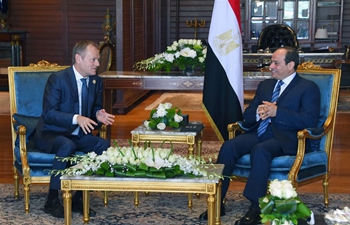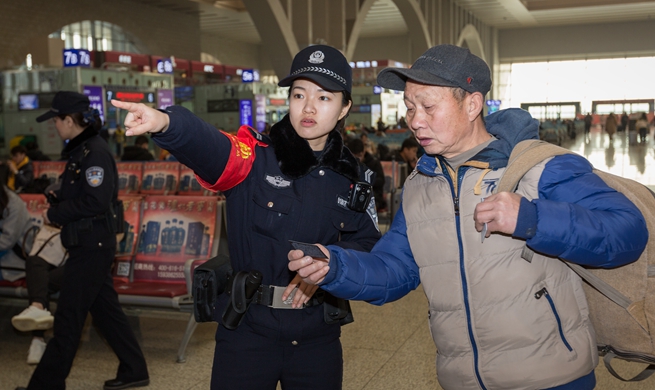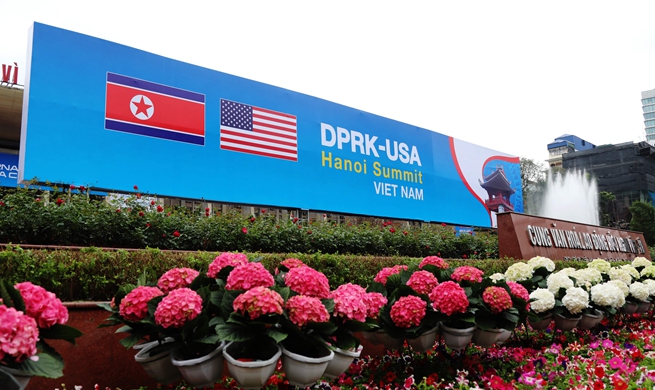GENEVA, Feb. 25 (Xinhua) -- The United Nations and the International Red Cross and Red Crescent Movement (ICRC) on Monday jointly pledged to step up action to prevent, end and respond to sexual and gender-based violence in and around conflict.
Through their work in conflict zones around the world, the two organizations said they see the enormous and lasting damage caused by sexual and gender-based violence, which is used as a tactic of war to dehumanize victims and destabilize entire communities and societies.
"Throughout my years at UNHCR, [the UN Refugee Agency] I was frequently horrified by first-hand accounts of sexual and gender-based violence in war zones, from the Democratic Republic of the Congo to the former Yugoslavia," said UN Secretary-General Antonio Guterres.
"Last year in Bangladesh, Rohingya refugees told me of the gang-rape of women and girls in their homes before they fled Myanmar. And earlier this month, we heard of brutal sexual violence, including the rape of at least 130 women and girls, in South Sudan between September and December last year," he said.
Guterres said that the world is growing ever more aware of sexual and gender-based violence in and around conflict and it must do more to prevent it and to hold the perpetrators to account.
The world needs to remember that all forms of violence against women, including domestic abuse, increase in situations of armed conflict and displacement, he said.
ICRC President Peter Maurer said, "Too often sexual atrocities are accepted as an inevitable by-product of war. This must end."
"The law is clear: rape and other forms of sexual violence are a violation," he said, adding that the UN and the ICRC were pledging to do better for the survivors of sexual and gender-based violence.
The two leaders were accompanied by Julienne Lusenge, who works with survivors of wartime sexual violence in the Democratic Republic of the Congo (DRC).
"It is time to stop using women's bodies as battlefields," said Lusenge. "I am pleased to join my voice with the United Nations and Red Cross Red Crescent movement, to emphasize the need for direct and adequate action.
"Direct support to grassroots women's organizations will enable us to treat victims and survivors in the Democratic Republic of the Congo within hours and provide them with access to legal services, transforming them from victims into agents of change and protectors of humanity."

















